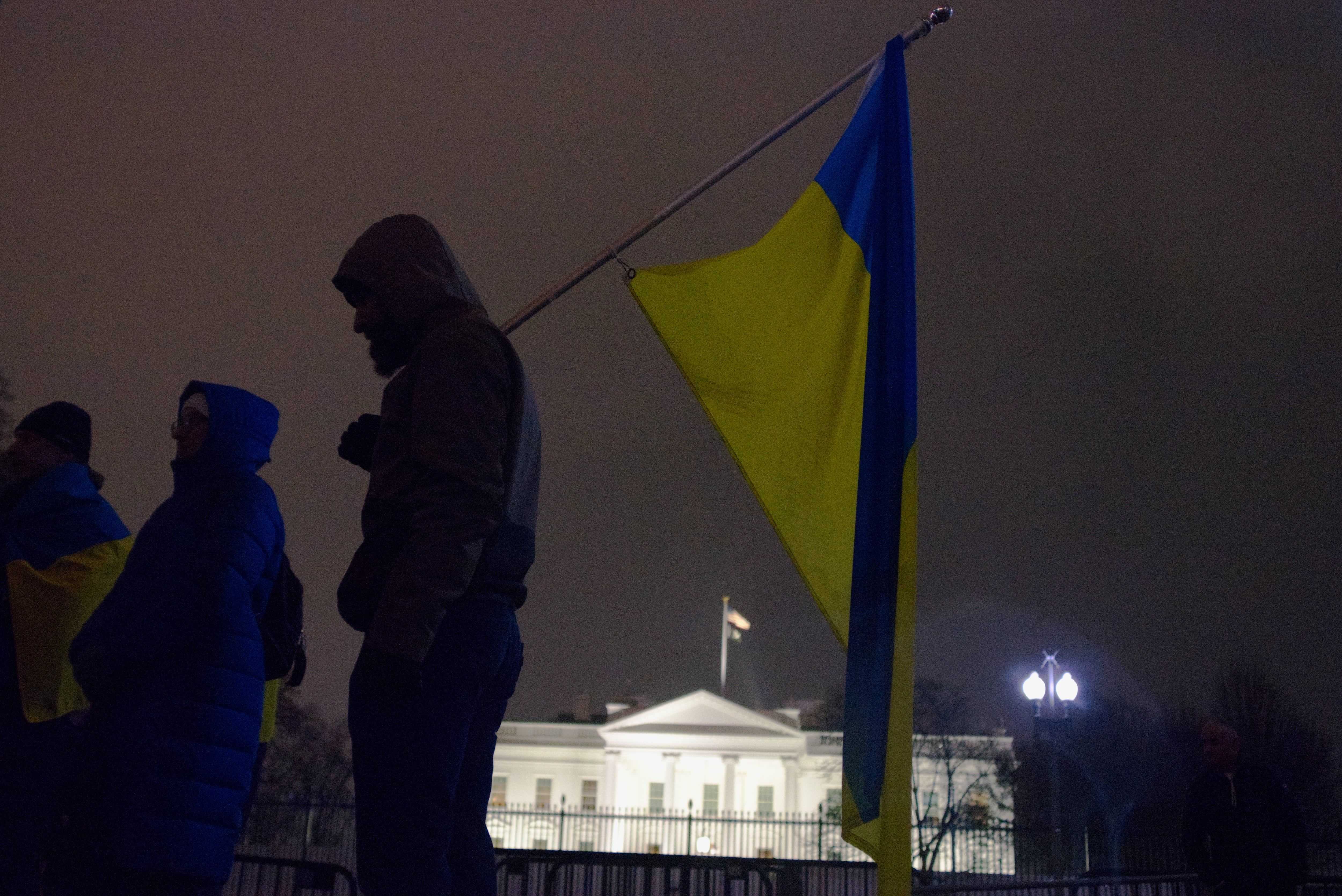
Editor's note: This is a guest column by retired Lt. Gen. Mark Hertling, who commanded 1st Armored Division and U.S. Army Europe before retiring in 2013.
During the latter part of my military career, I saw Ukraine's Army on exercises, in Balkan Peacekeeping Operations, and in combat. Early assessment: they had tough soldiers, and extremely bad senior officers. In the Balkans, they siphoned gas and sold it on the black market. In Iraq during the Sadr uprising of 2004, they never left their bases, and they sold ammunition to the insurgents.
Later in Iraq and Afghanistan — due to preparatory training at U.S. facilities in Germany prior to deploying and better leadership — their force began to improve. Slowly.
By 2012, the Ukrainian Army was becoming increasingly capable. My Ukrainian Army counterpart helped develop Ukraine's 2006 Defense White Paper, outlining steps to achieve a professional military led by a trained and educated officer and non-commissioned officer corps.
But the military transformation was consistently hindered by societal corruption, an excessively lean (.07% of GDP) defense budget, and a too large general officer corps, many of whom were hidebound, fat, proud of their Soviet military education, and adverse to change.
In early 2014, Ukraine's military was severely tested. But even with Putin's interference in the Kiev government and separist activity in the Crimea and other eastern provinces, I predicted the Army of Ukraine would stand and fight in the east. It wouldn't be pretty, I told several journalists, but a revived nationalism and improved training and military leadership would count on the battlefield. And early on, Ukraine's Army did stand.
The early battles were artillery duels, with Ukraine's Special Operations Force courageously contributing. But that is about to change in Phase II of the campaign. Separatists are increasingly reinforced by a technologically-advanced, combined arms organization with large caliber rocket artillery, precise air defense missiles, layers of intelligence gathering drones, strong logistics, and a strategic information operation campaign generated by a Russian leader who believes he must win at any cost. It could get very ugly — and one-sided.
In the past nine months, U.S. governmental and military officials have continued to comment on Ukraine's political situation, their military capabilities, and their economic environment. Ukraine is — to be sure — fighting for survival on multiple fronts: military, governmental, and economic. But they are also fighting to gain support from western governments who are focused perhaps too much on the Islamic State group and Ebola, and not enough on values and the international standard of national self-determination.
If there is a positive to be found in this conflict, I saw it during a visit to Kiev in November. My military background has taught me that those who adapt during conflict the fastest, tend to survive. Ukraine is adapting, and fast. Faster than they have in the past.
They are no longer talking about gradual change, eradication of corruption, elimination of the old guard, budget reform, and military transformation. They have developed plans to do all these things, and they have a group of young mavericks who are smart and up to the task of leading and acting. War and the specter of potential destruction provide a passion and energized focus that quickly overcomes inertia.
We must help them. Vice President Biden also visited Ukraine in November, and while he likely did not give Ukraine all the support they need, I sincerely hope he has offered more support in a variety of areas. The U.S. needs to continue actively supporting Ukraine, even as we are faced with other crisis.
We must expand economic sanctions against Russia. We must find new ways to counter the information campaign Mr. Putin is waging. We must influence NATO and EU nations to make the continued hard choices that show Mr. Putin we stand united in not allowing this attack on a sovereign nation to stand. And, we must increase our training, advising, and assisting Ukraine's military in the face of bold aggression.
"We don't have a lot of real support for saving Ukraine," said a representative from the office of Ukraine's President in answering that question, "but for the first time, our countrymen are giving us support for creating a new Ukraine. I hope that will be enough to see us through this crisis."
One young Member of Parliament mentioned she had studied our American Revolution, and she had learned we did pretty well in forming a new government, even when a superior force was attacking us. She reminded me we had a little help from the French. "Yes," she said, "we could use some of that kind of help."
The U.S., and Western Europe, should give it.



